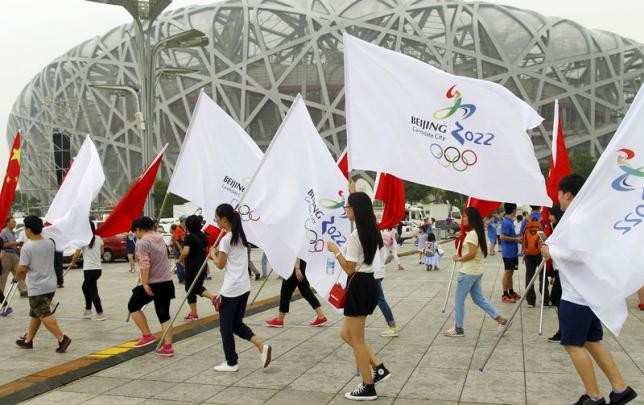After the International Olympic Committee announced on Friday that Beijing will host the 2022 Winter Olympics, China now faces a number of obstacles, such as lack of snow and strangling pollution.
The committee chose Beijing in spite of its lack of snow, water, and winter sports compared to Almaty. The latter, its final competitor, boasts snowy mountain peaks; athletes competing at winter sports venues; and local residents playing, chanting, or horseback riding in the snow.
The IOC presented two photos from between Jan. 20 and 23, which is two weeks before the period during which the Beijing Winter Olympics will take place in 2022, for its bid evaluation.
The committee stated that the Zhangjiakou and Yanqing Zones have minimal annual snowfall and the Games would rely completely on artificial snow.
“There would be no opportunity to haul snow from higher elevations for contingency maintenance to the racecourses so a contingency plan would rely on stockpiled man-made snow,” said the committee.
“You can make snow as long as you can mix air and water," said Bob Roberts, the president of the California Ski Industry Association. "Our snow gets a whole lot more use than Olympic snow is going to get . . . and if you’re telling me their average daytime temperature is in the 40s, they will have plenty of time in the evening to refresh those snows every single day.”
In line with this, President Xi Jinping expressed his support by giving a statement last minute before the vote, swaying the 86 delegates via pre-recorded video.
In his statement, he said that Beijing Olympics would boost exchanges and mutual understanding between the Chinese and other civilizations of the world.
China's Sports Minister Liu Peng said that they have a strong experience in organizing winter Games. "Beijing 2022 will build on our existing snow-making capabilities to supplement snowfall . . . with minimal environmental impact," he assured.



























